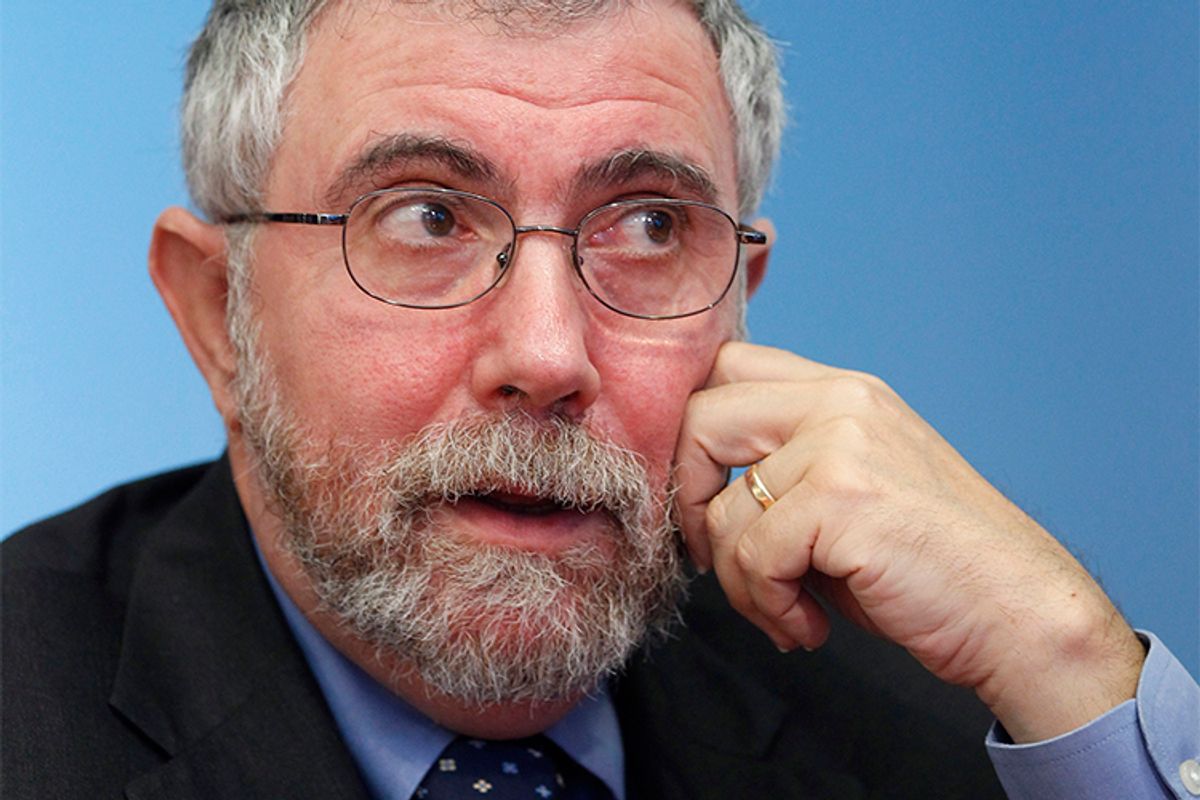Bill Gross made a major splash in the financial world last week when he announced that that he was leaving Pimco, the $2 trillion mutual fund he co-founded four decades ago, amid bitter clashes with other Pimco executives.
Gross’ departure is more than just a tale of C-suite intrigue and a palace coup, however. As economist and New York Times columnist Paul Krugman writes today, Gross’ ouster makes him “the only major deficit hysteric to pay a price for getting it wrong.”
Here’s the background. While the Great Recession may have officially ended in 2009, the economy has been mired in a so-called liquidity trap since 2008. Classical economics, borrowing from thinkers like the early 19th-century British economist David Ricardo, posits that it’s bad for governments to run deficits because public deficit spending crowds out private investment. In a liquidity trap, Krugman explains, “government borrowing doesn’t compete with private demand because the private sector doesn’t want to spend.”
That means that the predicted consequences of deficits – like higher interest rates as the government crowds out the private sector – don’t pan out. But, Krugman observes, Gross joined the ranks of those predicting a spike in interest rates – any day now! – absent drastic action to cut the budget deficit.
Scholars of past depressions – Krugman included – had predicted at the outset of the financial crisis that we’d find ourselves in a liquidity trap, but Gross went all in on his deficit mania. After a Pimco managing director who accurately bet that interest rates would stay low left the firm, Gross became increasingly hysterical – and wrong – in his predictions, Krugman writes. The result? “[N]either he nor Pimco ever recovered.”
Gross’ stubborn “refusal to acknowledge that the rules are different in a persistently depressed economy,” Krugman says, is best thought of as “depression denial syndrome.” Unfortunately, he laments, Gross’ story is atypical of most deficit maniacs, who have largely not been held accountable for consistently erroneous forecasts:
So is this an edifying tale in which bad ideas were proved wrong by experience, people’s eyes were opened, and truth prevailed? Sorry, no. In fact, it’s very hard to find any examples of people who have changed their minds. People who were predicting soaring inflation and interest rates five years ago are still predicting soaring inflation and interest rates today, vigorously rejecting any suggestion that they should reconsider their views in light of experience.
And that’s what makes the Bill Gross story interesting. He’s pretty much the only major deficit hysteric to pay a price for getting it wrong (even though he remains, of course, immensely rich). Pimco has taken a hit, but everywhere else the reign of error continues undisturbed.

Shares